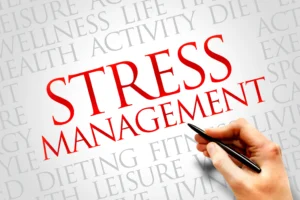
When it comes to managing health challenges, Jamie Fox likes drama for health issues as a unique form of expression, using the power of storytelling to address personal struggles. His passion for drama not only entertains but also serves as a therapeutic tool, helping him and others navigate difficult times. By blending the emotional depth of acting with real-life health concerns, Jamie has crafted a path that resonates with many. Let’s dive into the content to learn more about how entertainment plays a key role in his healing process.
The Power of Entertainment in Addressing Emotional and Physical Health
Entertainment plays a significant role in addressing both emotional and physical health, offering a unique avenue for healing. Through engaging stories, characters, and situations, viewers can often find comfort, distraction, or even inspiration in times of struggle. For individuals dealing with stress, anxiety, or chronic health issues, movies, shows, or theatrical performances can provide an emotional release, helping them cope by fostering feelings of connection and understanding. This form of emotional support is not only impactful on a mental level but can also contribute to physical well-being by reducing stress levels and promoting relaxation. In addition, entertainment serves as a tool for raising awareness about various health conditions and their impact on individuals’ lives. By showcasing realistic portrayals of illness or emotional challenges, entertainment can help break down stigmas and encourage empathy. Whether through drama, comedy, or documentary-style storytelling, this medium offers an accessible way for people to reflect on their health and others’, often motivating healthier lifestyle choices or a more open dialogue about personal well-being.
Why Storytelling Matters in Coping with Life’s Challenges
Storytelling has long been a powerful tool for coping with life’s challenges, much like how understanding the impact of the Most Addictive Drug on society can shed light on the complexities of addiction. It allows individuals to express emotions, share personal experiences, and connect with others who may have faced similar struggles. Whether through movies, books, or personal conversations, storytelling offers a unique way to process emotions, reduce stress, and gain new perspectives on difficult situations. The narrative form helps people make sense of their experiences, often bringing clarity and emotional relief when faced with overwhelming circumstances. Additionally, storytelling fosters empathy and understanding, both for the storyteller and the audience. By hearing others’ stories or sharing one’s own, individuals can find validation, comfort, and even strength in the realization that they are not alone. This connection can serve as a crucial component of emotional healing, offering both a release and a sense of community support in times of adversity. The therapeutic nature of storytelling often proves beneficial for mental and emotional well-being, making it an essential tool in coping with life’s inevitable challenges.
Connecting Emotions and Healing Through On-Screen Performances
Emotions are a key factor in the healing journey, and the art of storytelling through performances has long been acknowledged for its capacity to engage viewers emotionally. By bringing to life characters who navigate familiar struggles, actors can trigger a spectrum of emotions that deeply resonate with audiences. This emotional engagement not only provides a way for individuals to reflect on their personal experiences but also aligns with techniques for a balanced life, offering a unique therapeutic outlet. Experiencing emotions like happiness, sadness, or frustration through these portrayals can contribute to personal growth and emotional well-being. Dramas, in particular, explore the nuances of the human condition, creating a space for individuals to face their emotions in a safe environment. These narratives act as reflections of life’s challenges, while also providing insight into resolution or acceptance. The emotional connections formed through these stories and performances can go beyond simple entertainment, offering techniques for a balanced life that promote healing and help individuals manage their own health concerns more effectively.
How Acting and Drama Can Influence Mental Health Recovery
Acting and drama offer a creative outlet for individuals dealing with mental health challenges, providing them a way to express emotions that are often difficult to articulate. The process of embodying different characters and situations allows participants to step outside of their own struggles, fostering self-awareness and emotional release. Drama therapy, in particular, has been used as a tool to support mental health recovery by encouraging self-expression and creating a safe space for individuals to explore their feelings. In addition, the immersive nature of drama can help individuals build resilience and gain new perspectives on their experiences. By taking on different roles, they can challenge their usual thought patterns and practise emotional regulation in a controlled environment. The cathartic process of acting not only aids in emotional healing but also promotes personal growth, making it a valuable resource for those seeking to improve their mental health.
The Therapeutic Effects of Creative Expression in Managing Stress
Creative expression has long been recognized as a powerful tool for managing stress and anxiety while improving mental health. When individuals immerse themselves in activities such as acting, painting, or writing, they can process their emotions and experiences in a meaningful way. Engaging with drama, for instance, allows people to step into different roles and explore various emotions, offering a safe space to release tension. By expressing feelings that may be difficult to articulate in everyday life, creative outlets can provide both relief and understanding, making them an effective complement to more traditional methods of stress and anxiety management. This connection between creativity and healing highlights how personal expression serves as an important mechanism for emotional balance and self-awareness. At Health Advisor Talk, we are committed to delivering reliable and insightful information on the many ways individuals can support their health and well-being. The intersection of entertainment and healing is a fascinating area that sheds light on the therapeutic potential of the arts. Whether it’s through the cathartic experience of watching a film or the reflective process of participating in a creative activity, these practices offer more than just entertainment—they provide a pathway to better emotional health. By incorporating artistic expression into one’s routine, individuals may find greater resilience and peace in their daily lives, reinforcing the notion that healing can take many different forms.
Enjoyed the Read? Share It!







